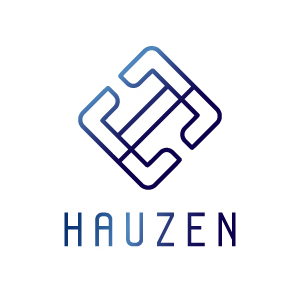Overview of Insurance And Reinsurance Regulation In Hong Kong
Introduction
Hong Kong’s insurance industry is governed by the Insurance Authority (IA), an independent statutory body responsible for overseeing insurers and intermediaries under the Insurance Ordinance (Cap. 41). This legislation ensures that only authorized entities like insurers, Lloyd’s, or approved underwriters operate in the territory. Entities maintaining offices or agencies in Hong Kong are deemed to be conducting business locally and hence subject to Hong Kong insurance regulation.
Regulation of Insurers
In Hong Kong, direct insurers and reinsurers fall under the same legal definition, though distinctions exist. Reinsurers can handle both general and long-term business, unlike direct insurers who must choose one. Notably, reinsurers are not required to maintain assets within Hong Kong, unlike insurers.
Market Intermediaries
Since 23 September 2019, the IA has been the sole regulator of insurance intermediaries, replacing the prior self-regulatory framework. Licensing is mandatory for anyone undertaking regulated activities, with restrictions on agents who can only represent up to four insurers, two of which may engage in long-term business.
Licensing Process
To operate in Hong Kong, insurers must meet specific criteria, including requirements as to paid-up capital, solvency margins, and director qualifications. The authorization process varies, typically taking 4 to 18 months. For intermediaries, the process is shorter, focusing on fitness and properness standards.
Ownership and Control
There are no restrictions on foreign ownership, provided insurers meet all regulatory criteria. Any significant change in control (15% or more shareholding) requires IA approval. This will soon change under the Insurance (Amendment) Bill 2023 which is expected to come into law in 2024. Going forward, IA approval will be required for changes in minority and majority shareholder controllers of authorized insurers incorporated in Hong Kong, or designated by the IA as carrying on a majority of their insurance business in or from Hong Kong.
Non-Admitted Insurance
Offshore insurers can underwrite policies for Hong Kong clients from abroad if they do not conduct business within Hong Kong. This approach focuses on where the activity occurs rather than risk location.
Regulatory Framework
Both local and foreign entities must meet authorization standards to operate branches. The IA demands foreign branches be in jurisdictions with robust legal frameworks and supervision.
Penalties for Unauthorized Operations
Operating without the necessary permissions can result in fines or imprisonment. Daily fines may apply for ongoing offenses.
Supervisory Environment
The IA wields considerable power to investigate and discipline insurers and intermediaries. Sanctions range from reprimands to license revocations.
Solvency and Capital Requirements
Insurers must adhere to a capital adequacy framework, maintaining assets exceeding liabilities. A new risk-based capital regime is being introduced, focusing on quantitative and qualitative aspects.
Policyholder Protection
Currently, there is no comprehensive compensation scheme for insolvent insurers, though certain general policies are covered. A proposed scheme is expected to cover most policies, offering partial compensation.
Group Supervision
The IA supervises insurance groups with Hong Kong-incorporated holding companies. These groups must comply with reporting and capital requirements.
Senior Management and Liability
Approval is required for senior management positions, who must meet fit and proper criteria. These individuals can be held personally liable for regulatory breaches.
Operational Requirements
Insurers must maintain a local office with adequate management. Outsourcing is allowed under and in accordance with IA guidelines, requiring notification for significant arrangements.
Investment Restrictions
Insurers must maintain a solvency margin above minimum capital requirements and manage investment risks according to IA guidelines.
Sales and Marketing
The IA regulates insurance sales, with codes of conduct for agents and brokers. Restrictions exist on marketing from outside Hong Kong, requiring local licensing for active marketing.
Consumer Protections
Consumer contracts, including insurance, are protected under the Unconscionable Contracts Ordinance, with potential future enhancements through a policyholder protection scheme.
Dispute Resolution
Hong Kong offers robust arbitration and mediation services for resolving disputes, with awards enforceable in over 150 jurisdictions.
Transfer Mechanisms
Statutory procedures exist for transferring insurance portfolios, requiring court or IA approval and stakeholder notification.
Challenges and Innovations
New entrants face regulatory hurdles and market competition, with over 160 established insurers. However, digital innovation, supported by the IA, is transforming the landscape. Insurtech is thriving, with virtual insurers and digital distribution channels gaining ground, aided by initiatives like the Insurtech Sandbox and Fast Track.
Data and Privacy
Insurers must comply with the Personal Data (Privacy) Ordinance, regulating data handling and potential future amendments introducing breach notifications.
Future Trends
Insurtech, cross-border initiatives like the “Insurance Connect” scheme, and the development of insurance-linked securities are set to shape Hong Kong’s insurance sector. The IA’s initiatives aim to strengthen Hong Kong’s position as a regional insurance hub, with opportunities arising from the Greater Bay Area integration and Belt and Road Initiative.
This overview highlights the dynamic and evolving nature of Hong Kong’s insurance and reinsurance markets, underscoring regulatory frameworks, market challenges, and future opportunities.







